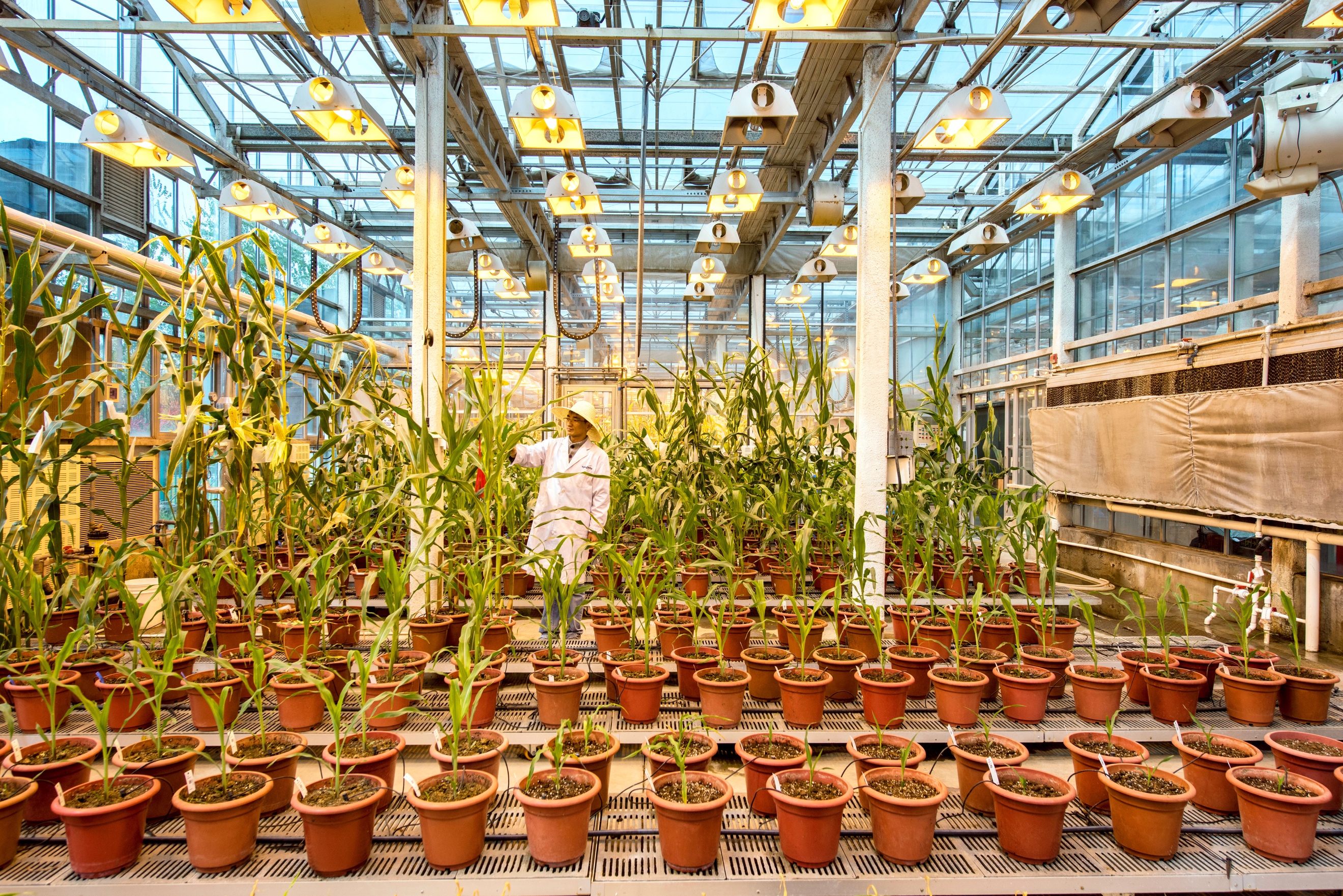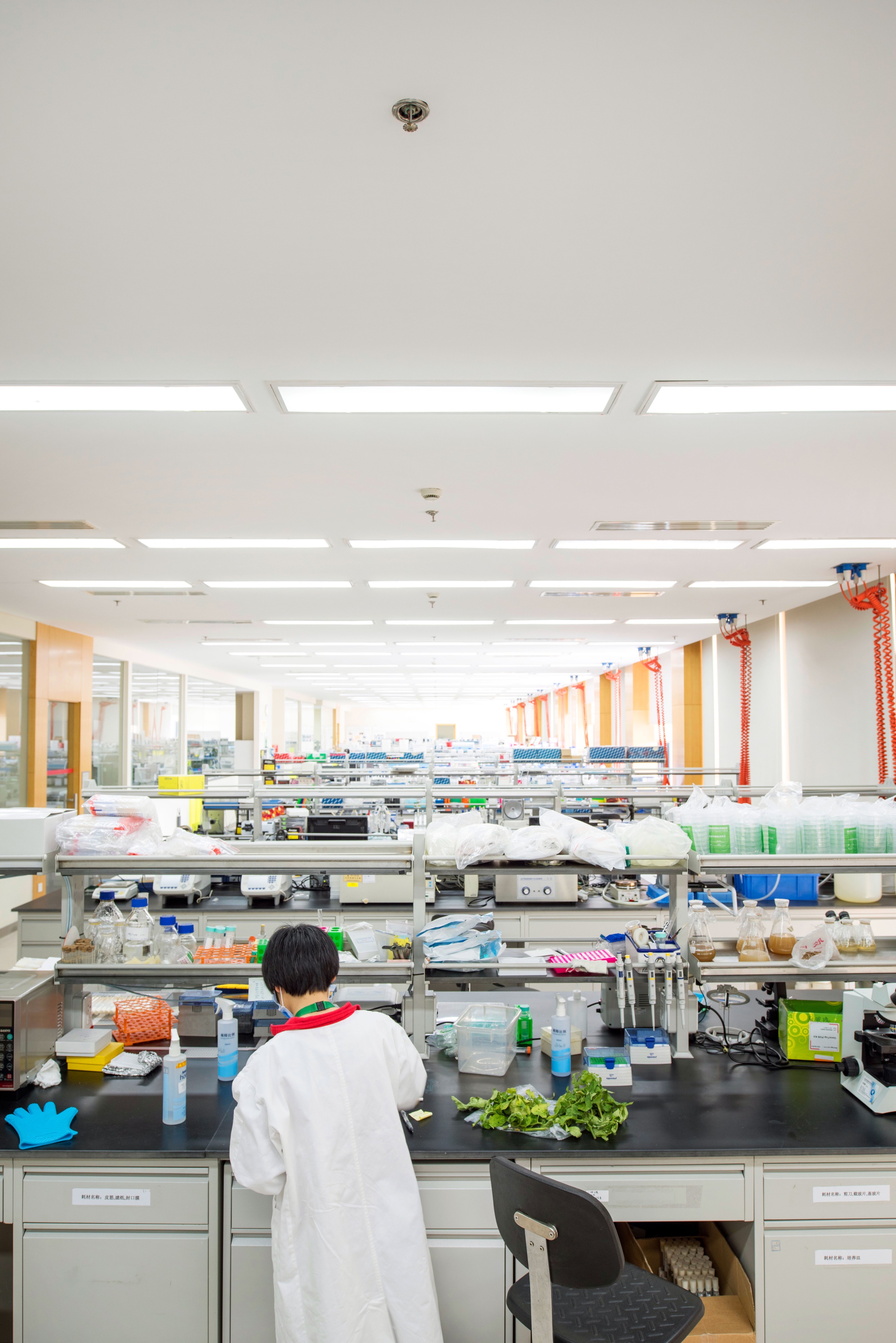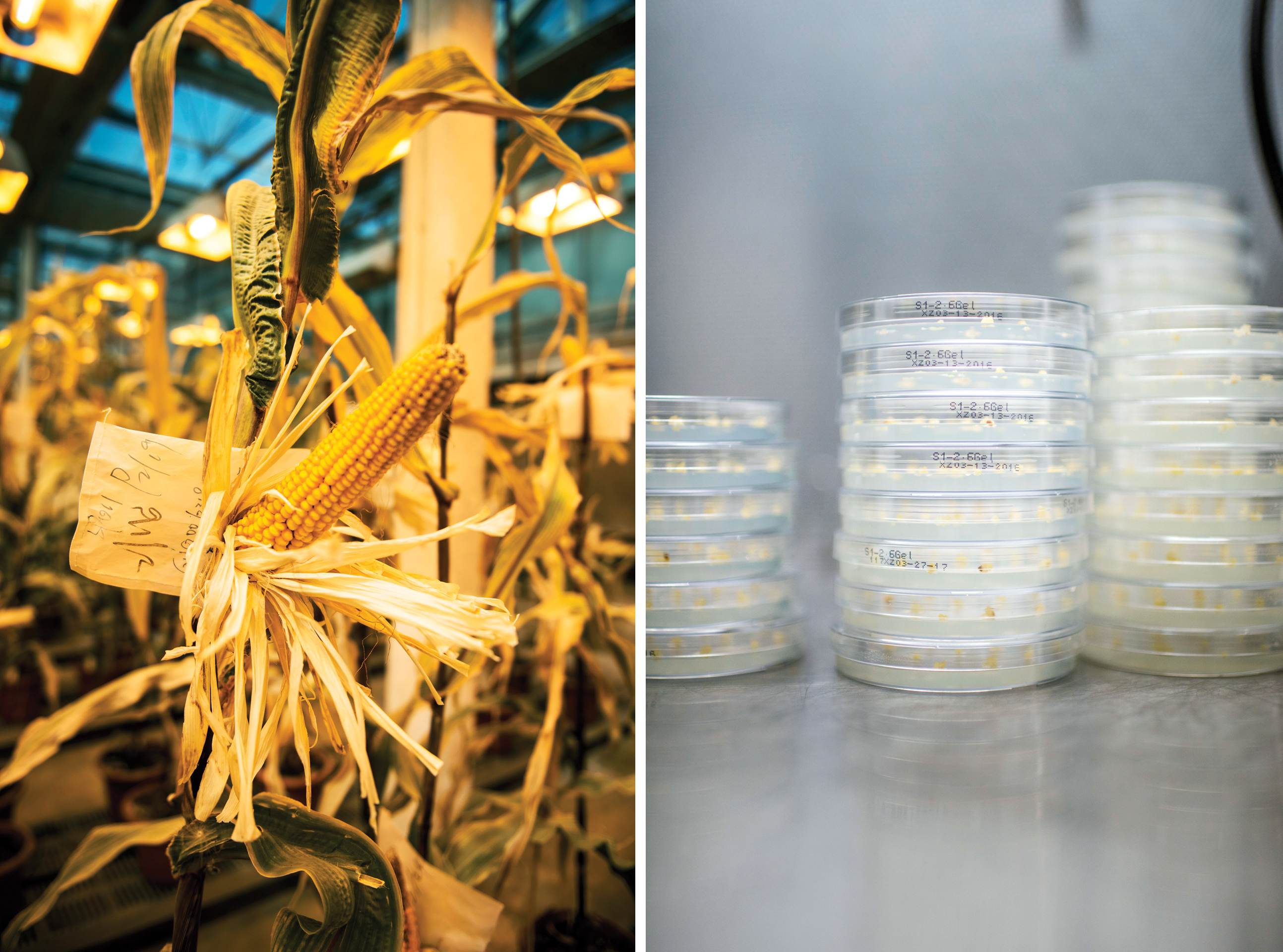中国化工收购先正达,能否解决中国的粮食安全问题?
|
中国化工集团公司计划斥资430亿美元现金,收购瑞士先正达公司。在杀虫剂、除草剂和其他作物保护产品领域,先正达处于世界领先地位,同时还是全球第三大种子生产商。 这的确是一笔大交易,但我们为什么要关心一家中国化工公司收购一家瑞士农业公司?首先,这是全球农业领域整合浪潮的一部分,这股浪潮将使得少数几家跨国巨头控制世界商业种子市场越来越大的份额(大约50%)。除中国化工与先正达的联姻之外,陶氏化学正在收购杜邦公司,德国的拜耳公司正在吞并孟山都,后者也许是最有争议的转基因种子生产商。这股合计价值高达1700亿美元的并购狂欢,将对全球农业的未来产生深远的影响。 除此之外,中国化工收购先正达有助于世人更加深刻地理解中国对其未来抱有的愿景。这笔交易表明了全球第二大经济体在创新、生物科技、知识产权和全球化等领域的政策趋势。资深中国问题专家罗伯特•库恩表示,“这笔交易足以证明中国正在发生的事情。它真的确定了前沿阵地。”这也是一项有可能改变全球粮食供应和成本的国家战略的最新一步。 |
ChemChina’s planned takeover, for $43 billion in cash, of Syngenta (syt), the Swiss-based world leader in advanced insecticides, herbicides, and other crop-protection products and the No. 3 producer of seeds. Why should we care about a Chinese chemical company buying a Swiss agricultural business, however mammoth the deal might be? For starters, it’s part of a wave of global consolidation in agriculture that will put an increasingly large portion of the world’s commercial seed market—roughly 50%—under the control of a few giant multinationals. In addition to the ChemChina/Syngenta union, Dow Chemical (dow) is buying DuPont (dd), and Germany’s Bayer is in the process of swallowing up Monsanto (mon), perhaps the most controversial producer of genetically modified seed species. This combined $170 billion deal binge promises to have a profound impact on the future of global agriculture. Beyond that, ChemChina’s purchase of Syngenta provides valuable insight about China’s broader view of its future. The deal signals important trends in the country’s policy on innovation, biotechnology, intellectual property, and globalization. “This acquisition is very probative of what’s happening in China,” says Robert Kuhn, a longtime China expert. “It really defines the frontier.” It’s also the latest step in a national strategy that could change food supplies and costs worldwide. |

|
这笔交易需要获得全球各地所有相关的政府部门批准,很可能在5月份或6月份完成。按照中国的标准,这是一笔大规模交易,足以刷新此前的记录——2013年,中海油斥资150亿美元收购加拿大能源巨头尼克森公司。在首席执行官任建新的带领下,中国化工已经成为中国国有企业中最具侵略性的全球并购者,比如在2015年收购意大利倍耐力轮胎公司和德国克劳斯玛菲机械公司。但先正达收购案的规模要大得多,如果没有获得中国政府的支持,它是不可能完成的。要了解这笔交易将如何推动中国的诸多利益,以及为什么它将对其他国家产生重大影响,你首先必须理解中国与粮食的独特关系。 永恒的课题 正如政府发布的一份农业规划文件所言,作为世界上人口最多的国家,中国的粮食战略建立在“饥荒频发的历史”之上。习近平主席在2013年承认,粮食安全是“永恒的课题”。二千多年前,皇王就开始储备粮食,以应对饥荒的威胁。自那时起,中国的领导人一直在做相同的事情。 政府声称,中国现在常年维持世界上最庞大的玉米、大米和小麦储备,但它并没有公布具体数据。联合国建议将每年粮食消费额的17%作为合理的全球安全储备。作为世界上最大的粮食出口国,美国根本没有任何政府储备。咨询师估计,中国的粮食储备极为庞大,相当于年消费额的45%到60%。 这项政策不再合乎情理。美国农业部经济学家兼中国专家弗雷德•盖尔表示,“这是一种可追溯到几千年前的短浅观点。中国人的日常饮食变化很大。很少有人每天只吃米饭和面条。”决策者开始直面这个新现实。他们仍然痴迷于维护粮食安全,但其性质正在改变。历史上第一次,中国人终于能吃饱饭了。“如果粮食政策的目标是确保没有人挨饿,这真的不是问题。”一位要求匿名的中国咨询师这样说道。“真正的议题是提供更多的蛋白质。” 像世界各地的人们一样,随着收入超越生存水平,中国人想要更多的蛋白质。他们的首选蛋白质是猪肉;他们消费了世界上一半猪肉——随着收入的增长,这一比例还在上升。相较于直接吃粮食,吃肉需要耗费多达四倍的粮食(即牲畜饲料)。 于是,中国必须面对这一新现实:粮食安全不再意味着只有足够多的粮食。它还意味着提供足够多的高蛋白质食物,以满足民众日益上涨的需求。中国必须设法满足这一新常态的要求——利用只占全世界7%的耕地养活19%的世界人口,而且要让他们每天都吃得更好。 这恰好是先正达的强项。中国政府最近披露了一项双管齐下的粮食安全战略,它远比仅仅填充更大的粮仓复杂得多,而这笔收购交易正是该战略的组成部分。先正达CEO方华德表示,“这笔交易的目的在于保障中国的食品安全。”他是一位美国人,曾经在2003年到2008年执掌杜邦公司的种子和农业化学品业务。中国可以采用两种方式来确保粮食安全。第一种显而易见:“改善技术和生产率低下的中国农业实践,”方华德说。第二种或许令人意想不到:“确保我们正在世界各地开发尖端的农业技术。即使中国发生严重旱涝灾害,他们也想确保世界各地有足够的粮食可供进口。” 也就是说,有史以来第一次,中国正在重新绘制通往粮食安全的路线图。中国政府当然希望在国内生产它所需的所有食物,但它承认这是办不到的。于是,中国不仅尝试着显著提高国内产量,同时也试图确保世界其他地方总是拥有大量食物,而且中国能够随时满足自身的需要——要么径直购买,要么通过收购所有权或其他交易来直接控制外国的粮食资源。 转基因种子 所有这些目标都不容易实现。首先,作为粮食安全的第一部分,增加国内粮食产量是一个严峻的挑战。于中国而言,增加差强人意的粮食产量有双重目标。其一是满足日益增长的需求,其二是增加农民收入。迄今为止,中国主要通过使用农用化学品和化肥来提高产量。过度使用农用化学品和化肥对土壤和水造成的污染,甚至比工业活动更加严重。现如今,最有效的增产途径莫过于使用转基因种子。但近30年来频频爆发的食品安全丑闻,给中国人留下了巨大的创伤,以至于他们极端警惕转基因生物,哪怕123位诺贝尔奖获得者联名签署了一份为转基因食品安全背书的公开信。 中国人倾向于怀疑任何标榜为创新的食品开发项目,认为其背后掩藏着不可告人的邪恶目的。许多人认为,转基因生物是一种旨在伤害中国人的西方阴谋。这种理论或许跟中国缺乏本土开发的转基因种子有关,尽管中国实际上早在上世纪90年代就花费数年时间从事这方面的研究。 自那以后,为安抚公众的恐惧情绪,中国政府几乎禁止了所有的转基因种子。美国农业部的盖尔指出,“转基因种子可以帮助中国解决诸如干旱和虫害这类令人头疼的农业难题。但过去十年来,消费者的抵触情绪持续增长。在目前这个时点,这两种利益真的发生了冲突。在长达十年的研发之后,中国政府从未批准外国开发的转基因大米和玉米进入国内市场。” 中国领导人知道这种状况必须改变。习近平主席在2013年指出,中国要“要大胆创新研究,占领转基因技术制高点,不能把转基因农产品市场都让外国大公司占领了。”面对这种挑战,最好或许也是唯一的应对方式是,收购一家外国公司——先正达。 |
Approved by all relevant government authorities globally, the deal looks likely to close in May or June. It’s a massive transaction by Chinese standards, dwarfing the previous record, set by oil giant CNOOC’s acquisition of a Canadian energy company, Nexen, for $15 billion in 2013. ChemChina CEO Ren Jianxin has made his company the most aggressive global acquirer among China’s state-owned enterprises, buying Italy’s Pirelli tire company and Germany’s Krauss-Maffei machinery manufacturer in 2015, for example. But the Syngenta acquisition is vastly larger, and it wouldn’t have happened without the Chinese government’s blessing. To understand how it advances many of the country’s interests and why it’s so important beyond China, one must begin at China’s unique relationship with food. The food strategy of the world’s most populous country is built on a “history of innumerable famines,” as a government planning document for China’s agricultural sector put it. President Xi Jinping acknowledged in 2013 that food security is “an eternal issue for us.” Emperors were stockpiling grain against the threat of famine more than 2,000 years ago, and the country’s leaders have been doing the same ever since. China today maintains massive stockpiles of corn, rice, and wheat—the world’s largest reserves, the government claims, though it doesn’t release figures. The UN has recommended 17% of annual grain consumption as a reasonable global safety reserve. The U.S., which produces so much food that it’s the world’s top food exporter, holds no government stockpiles at all. Consultants believe China keeps reserves equaling a huge 45% to 60% of annual consumption, just in case. That policy no longer makes sense. “It’s a myopic view going back millennia,” says Fred Gale, an economist and China specialist at the U.S. Department of Agriculture. “The Chinese diet is changing so much. Few people eat just rice and noodles every day.” Policymakers are beginning to face that new reality. Food security is still an obsession, but its nature is changing. For the first time, the country overall is decently fed. “If the issue is that no one goes hungry, there really isn’t an issue,” says a China-based consultant who requested anonymity because he’s critical of government policy. “The real issue is the move to more protein.” Like people everywhere, the Chinese want more protein as their incomes rise above subsistence levels. Their protein of choice is pork; they consume half of all the world’s pork, a proportion that’s rising along with incomes. Feeding people meat requires three to four times as much grain in the form of livestock feed as does feeding people grain directly. Thus China’s new reality: Food security no longer means just having enough food. It also means being able to feed people the higher-protein food they increasingly demand. The danger is no longer that millions will starve, but rather that millions may rise up in anger if they can’t get, or can’t afford, the diet to which they’re growing accustomed. China must somehow meet the demands of this new normal by feeding 19% of the world’s people—and feeding them better every day—with just 7% of the world’s arable land. That’s where Syngenta comes in. The acquisition is part of a recently unveiled, two-pronged strategy for Chinese food security that’s far more sophisticated than just filling bigger granaries. “The reason for this deal was food security for China,” says Syngenta CEO Erik Fyrwald, an American who ran DuPont’s seed and agrochemicals business from 2003 to 2008. That security is to be achieved in two ways. One is obvious: “To improve technology and farm practices in China, where farm productivity is low,” says Fyrwald. The second is unexpected: “To make sure we’re developing leading-edge technology for agriculture around the world. Even if there’s a big drought or a big flood in China, they want to make sure there’s enough food available around the world to import.” That is, China is remapping the path to food security for the first time in its long history. The government would love to produce all the food it needs within its borders, but it’s acknowledging that it can’t. So while it tries to increase domestic production dramatically, it also aims to ensure that the rest of the world always has plenty of food and that China can get what it needs, either by buying it or by controlling foreign sources directly through ownership or other deals. None of this will be easy, and the challenges begin at home with the first prong of the strategy: higher domestic production. China’s poor crop yields must be increased not just to meet rising demand, but also so that Chinese farmers, the nation’s poorest people, can make more money. So far China has raised yields mainly by using commodity agricultural chemicals and fertilizers—far too many of them. They’ve polluted the soil and water even worse than industrial activity. The most effective way to raise yields now is to use genetically modified seeds. And the Chinese public, traumatized by 30 years of deadly food-safety scandals, is extremely wary of GMOs. Never mind that 123 Nobel Prize winners have signed a letter endorsing the safety of GMO foods. The Chinese tend to suspect evil behind any food development billed as innovation, and they don’t trust the government to keep their food safe. Many in China believe GMOs are a Western plot to harm them. That theory fits well with China’s lack of domestically developed GMO seeds, though the country actually spent years in the 1990s trying to develop them. Since then the government has banned virtually all GMO seeds in China because of public fear. “China has major agricultural issues that GMO seeds could address—drought, insects. These are big concerns in China,” says the USDA’s Gale. “But resistance among consumers has grown over the past 10 years. Those two interests are really clashing at this point. The authorities have never approved [foreign-developed] GMO rice and corn, after 10 years of study.” Chinese leaders know that has to change. China must “boldly research and innovate, [and] dominate the high points of GMO techniques,” President Xi said in a 2013 speech. “[We] cannot let foreign companies dominate the GMO market.” The best and perhaps only way to meet that challenge was to buy a foreign company—Syngenta. |

|
只要中国没有一家竞逐转基因领域的公司,这种技术将大幅提高农作物产量的前景就无法实现。如果中国种植西方的转基因作物,它就不得不依赖外国的转基因种子——这恰恰与粮食安全战略背道而驰。但鉴于一家国有企业将拥有一家全球领先的种子公司,政府的动机必将发生反转。于中国化工而言,广泛应用转基因种子是一场巨大的商业胜利;于政府而言,这是一场政策胜利。 这笔交易也有助于满足其他国家的优先事项。长期以模仿者形象示人的中国,希望成为世界顶尖创新者,特别是在科技,尤其是生物科技领域。先正达于2008年成立的北京研究中心,正在从事生物科技方面的科研工作。这笔交易完成后,该中心将从事更多的类似研究。随着中国正在尝试说服公众接受转基因生物,通过在中国研发更具生产力的非转基因种子,先正达或许能够助政府一臂之力。比如,该公司正在借助于传统杂交的新技术,让农作物更加抗菌和抗旱。此外,先正达还在北京研发基因组编辑的新技术;不同于转基因生物技术,它不涉及从另一个物种提取基因,再将其插入植物中。方华德解释说,“要想让玉米更耐旱,你可以修改这种作物的基因,而不必将不同的基因置入其中。这是非常令人兴奋的科学。”所有这一切,再加上最前沿的转基因生物研究,正是决策者希望在中国看到的一幕。 先正达的另一大吸引力是其遍及全球的运营版图。这家公司在北美、拉丁美洲、欧洲、中东和非洲地区经营大宗业务,在亚洲的存在感相对较弱,而中国化工可以帮助它拓展亚洲市场。在全球农业领域,中国化工自身的业务范围很广,但极其单薄;它主要销售低利润的农用化学品。在先正达运营的所有市场,更加先进的产品都让它成为一家举足轻重的公司。中国问题专家库恩表示,“先正达是一家真正的全球性公司,而作为一项战略目标,中国正在寻求与世界交往。一种看法认为,中国必须在全球化中发挥领导作用。它比任何其他主要国家都更加依赖全球化。” 特别是在食品安全领域。中国意识到,单凭自身的力量,它根本无法满足日益富裕的国民对食品的需求。作为其粮食安全战略的第二部分,中国正在进口越来越多的食物。与此同时,政府高层认为,中国必须设法加强安全感。大多数必须进口食物的国家,比如日本,都依赖于竞争激烈的世界市场来满足他们的需求。但对中国来说,这还不够安全。 因此,中国粮食安全的新战略包括全面控制其全球供应链,这个供应链从种子开始。另一个相对偏后的环节(也是由先正达提供)是先进的农作物保护产品——这些产品旨在帮助农作物生产更多的粮食,同时最大化地减少对环境的伤害。此外,中国正在收购贸易公司,并推动本土公司合并,以对抗西方大公司。 西方合作伙伴 于中国而言,收购先正达的重要意义还体现在另一个方面:随着全球化工和种子产业在过去18个月突然加快整合步伐,中国必须斩获一个重量级的西方合作伙伴。2015年,当陶氏化学与杜邦宣布合并的时候,孟山都公司正在寻求收购先正达,而后者希望获得一个高于收购要约的价格。就是在这个时候,中国化工加入这场竞购战,并支付了一笔足以满足先正达期望值的收购款。不久之后,拜耳宣布该公司正在收购孟山都。在这些交易尘埃落定之际,全球种子和农业化学品行业将涌现三大巨头:一家是美国的,一家是欧洲的,还有一家属于中国。 |
The GMO promise of dramatically higher crop yields was unavailable to China so long as the country didn’t have a player in the game. If it grew Western GMO crops, the country would become reliant on foreign sources of necessary seeds—the opposite of food security. But now that a state-owned enterprise will own a leading seed company, the country’s incentives reverse. Wide adoption of GMO seeds becomes a big commercial win for ChemChina and a policy win for the government. The deal helps meet other national priorities too. Long an imitator, China wants to become the world’s top innovator, especially in technology and even more especially in biotech. Syngenta established a Beijing research center in 2008 and is doing biotech science there now; it will be doing much more after the deal closes. As China moves gradually toward public acceptance of GMOs, Syngenta may help smooth the transition by developing, in China, non-GMO seeds that are nonetheless more productive. For example, it’s making crops more fungus-and drought-resistant through new techniques of traditional hybridizing. It’s also working in Beijing on new technology in genome editing; unlike GMO technology, it doesn’t involve inserting a gene from another species, such as a bacterium, into a plant. “To make a corn plant more drought tolerant, you can modify genes in the plant without having to put a different gene in,” Fyrwald explains. “That’s very exciting science.” All of that, plus leading-edge GMO research, is what policymakers want more of in China. Another of Syngenta’s attractions is its global reach. The company does significant business in North America, Latin America, and EMEA (Europe, the Middle East, and Africa), with slightly less presence in Asia, where ChemChina can help. ChemChina’s own presence in global agriculture is wide but paper-thin; it mostly sells low-profit commodity agrochemicals. Syngenta’s more advanced products make it more important wherever it operates. “Syngenta is a truly worldwide company, and China has a strategic objective of engaging with the world,” says Kuhn. “There’s a sense that China must take leadership in globalization. It’s more dependent on globalization than any other major country.” That’s especially true when it comes to food security. Having accepted that it can’t satisfy its prospering population alone, China must find a way to feel secure while importing growing quantities of food—the second prong of its strategy. Most countries that must import food, such as Japan, count on a deep, competitive world market to supply their needs. But that’s not secure enough for China. Thus China’s new strategy for food security includes controlling its global supply chain from beginning to end, and the chain begins with seeds. A later link, also supplied by Syngenta, is advanced crop protection products to help plants produce more food with minimum damage to the environment. Separately, China is also buying trading companies and combining some of its own to counter big Western firms. Snagging Syngenta is crucially important for China in one other way: The country had to secure a major Western partner as the global chemical and seed industry suddenly consolidated over the past 18 months. When Dow and DuPont announced their merger in 2015, Monsanto was trying to buy Syngenta, which wanted a higher price than Monsanto was offering. That’s when ChemChina stepped in and paid what Syngenta wanted. Soon thereafter, Bayer announced it was buying Monsanto. When those deals close, the result will be three global giants in seeds and agrochemicals: one American, one European, and one Chinese. |

|
中国化工和先正达的合并交易,引发了一些重要的问题。在这个全球最大的食品市场,那些刚刚合并的竞争对手将获得何种待遇?“一个明明存在,却被人刻意回避的问题是:中国是只对改革感兴趣,还是真心致力于改革开放?”一位美国商界领袖兼中国问题专家这样说道。“一旦中国拥有先正达,它就有机会向销售竞品的其他公司开放市场。政府是否会阻止进口,还是会承认竞争是件好事?” 答案似乎是,中国喜欢竞争——在一定程度上。“中国政府为先正达、陶氏化学、拜耳、杜邦和孟山都等外国公司提供全面开放的市场准入机会。”在他的北京办公室接受电话采访时,中国化工CEO任建新这样说道。“尽管如此,我相信,鉴于中国化工是一家独一无二的国内公司,先正达将享有一种特殊地位。”他指出,除了接触中国政府的机会之外,中国化工还可以为先正达提供100个生产设备,与数十万农民的合作关系,以及一个旨在帮助农民购买先正达产品的融资计划。 一家主要竞争对手的CEO似乎接受了中国的新行业秩序。他说,“所谓的自由市场其实是不存在的。我们将密切关注中国对本土公司的偏袒。但我是个现实主义者。在一些领域,我们是无法获得公平的市场准入机会的。” 另一个大问题是,中国不断增长的胃口是否会危及世界其他地区的粮食安全?多年来,农业经济学家一直担心中国的旺盛需求可能会淹没世界粮食市场——自2008年以来,中国的食品进口一直在持续飙涨。然而,全球的粮食价格不仅没有上涨,反而下降了。如果这笔收购交易最终提升了中国或其他地区的粮食产量,它就将大大缓解全球粮食市场的价格上涨压力。广大农民可能不喜欢这样的结果,但这种前景将降低全球爆发粮食危机或地缘政治冲突的几率。 至少短期内如此。另一个与先正达交易相关的大问题是:接下来会发生什么?中国几乎肯定会增加国内粮食产量,但随着中产阶级群体对肉类的需求不断增长,它将需要更多的粮食和大豆。即使产量增长,中国也无法依靠自身力量生产足够多的粮食。历经饥荒频发的数千年历史之后,中国人终于解决了吃饱饭这一永恒的挑战。它将在多大程度上解决下一个挑战,让广大民众的饮食结构达到富裕国家的水准,是先正达交易寻求解决,但还没有给出答案的大问题。(财富中文网) 译者:Kevin |
The ChemChina/Syngenta deal raises important questions. How will its newly merged competitors be treated in China, the world’s largest food market? “That’s the elephant in the room: Is China interested in reform only, or interested in reform and opening up?” wonders a U.S. business luminary and China expert. “Once China owns Syngenta, there will be an opportunity to open to other companies with competing products. Will the authorities block imports or recognize that competition is good?” The answer seems to be that China likes competition up to a point. “The Chinese government is fully open in providing access to foreign players, including Syngenta, Dow, Bayer, DuPont, and Monsanto,” says ChemChina’s Ren in a phone interview from his Beijing office. “But in spite of this fact, I believe that with ChemChina as a domestic player in a unique and good position, Syngenta enjoys a special position.” He notes that besides access to its owner, the government, ChemChina can offer Syngenta 100 production facilities, relationships with hundreds of thousands of farmers, and a financing operation to help farmers buy Syngenta products. The CEO of a major competitor is resigned to the new industry order in China. “There’s no such thing as free markets,” he says. “We’ll be very watchful of bias to the local. But I’m a realist. We don’t have fair market access to some things.” Another big question: Will China’s growing appetite imperil food security for the rest of the world? Agricultural economists have worried for years that Chinese demand could overwhelm world food markets, and the country’s food imports have increased sharply since 2008. Yet global prices haven’t spiked. On the contrary, they’ve declined. If the Syngenta deal raises yields in China and maybe elsewhere too, it will ease upward pricing pressure globally. Farmers may not like that result, but it will reduce chances of food-based crises or geopolitical conflicts. At least it will for a while. One more big question about the Syngenta deal is: What comes next? China will almost certainly increase domestic food production, but the more that its swelling middle class demands meat, the more grain and soybeans it will need. And even with higher yields, the country can’t produce enough on its own. The eternal challenge of fending off starvation has been met. After thousands of years, China has likely suffered its last famine. How well it can meet its next challenge, feeding its people a rich-country diet, is a big question the Syngenta deal addresses but doesn’t answer. |













